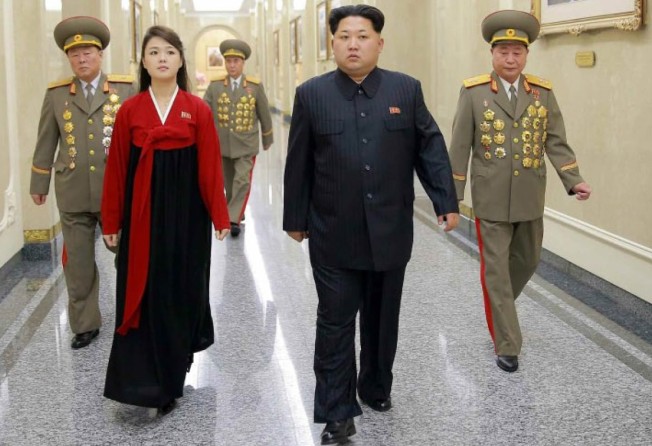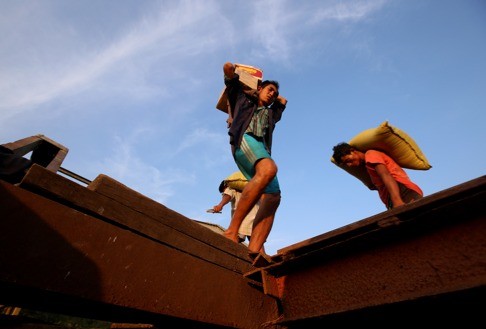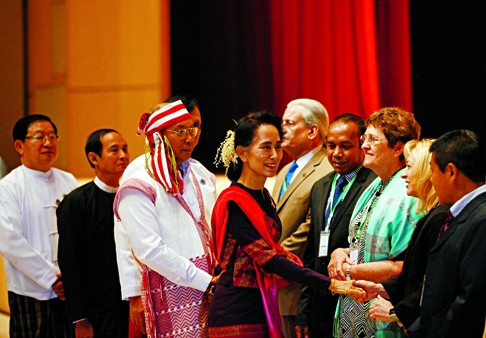The contrasting fates of North Korea and Myanmar demonstrate the power of change
Donald Kirk says thriving Myanmar gives every impression of a society marching on in progress while North Korea, still in the tight grip of a dictatorship, appears to be heading for a tragedy

The contrast between the political futures of the most troubled countries in Southeast and Northeast Asia extends from urban markets to fields and forests and to the remote inner sanctums of power. On a visit to Myanmar from Korea, I discovered a country that does not live up to the image of revolution and bloodshed, cronyism and corruption as portrayed in countless articles. The bloodshed for now is largely ended while streets and markets in Yangon, the historic capital, give every impression of flourishing. People swear that the old army-led government will step down as agreed at the end of March, opening the way for an orderly succession powered by the hero of the National League for Democracy, Aung San Suu Kyi. Ask if the army won’t step in again, and you hear, no, the victory of Suu Kyi’s party means the transition has to happen.
That understanding contrasts sadly with more depressing news from Korea, where the one-two punch of the North’s latest nuclear test and the launch of a satellite adds to pervasive pessimism about a happy conclusion to the North-South stand-off. The shutdown of the Kaesong Industrial Complex, just above the line between the two Koreas, snuffs out sometimes flickering hopes that the old Sunshine policy initiated by the late president Kim Dae-jung had a faint chance of surviving.
You can’t blame President Park Geun-hye for not wanting to keep pumping more than US$100 million a year into North Korea for the privilege of locating 124 small and medium-sized South Korean companies there. On the other hand, you wonder if the zone might have gone on as a portal for working relationships between about 500 South Korean managers and technicians and 54,000 North Korean workers. And you also wonder what it would take to make a fresh beginning in rapprochement – or if the North-South stand-off will escalate to armed conflict.

It’s inconceivable that any political force remotely similar to that of Suu Kyi’s party could survive for a moment in North Korea
In Pyongyang, the sight of taxis and traffic lights provides fodder for stories about “change”, as if these were miracles of modernity. Never mind that the country still has the billions to build nuclear warheads and long-range rockets while the leader, Kim Jong-un, calls for sending still more “working satellites” soaring to “higher targets”. Surely the same rockets that put satellites into orbit could also fulfil his dream of a long-range missile capable of reaching targets 10,000km away, with a warhead fixed to its nose cone.
It’s inconceivable, of course, that any political force remotely similar to that of Suu Kyi’s party could survive for a moment in North Korea. She’s suffered through a total of 15 years of house arrest, but her travails do not begin to compare with the executions in North Korea of those who disagreed even a little with Kim.

In Myanmar, the danger now is that of compromise between the National League for Democracy and the military-supported forces. Barred from taking over the government by a spurious constitutional amendment that disqualifies anyone with a foreign spouse, Suu Kyi is working with some of her foes on ways to bring about reconciliation that are bound to give space, and power, to the same old cronies and their military allies. When I stopped by the steel-gated front entrance to her estate, a guard said she was busy “in Parliament” in Naypyidaw, the capital that the military government ordered built to the north of Yangon, to be safe from marauding protesters. Above the gates loomed a picture of her father, Aung San, the general whose reward for talking the British into agreeing to Myanmar’s independence was his assassination by a rival.
Political violence remains a danger in Myanmar. It was refreshing, though, to visit a country that seems on the brink of change for the better. That’s in stark contrast to the dark drama of Korea, whose tragic outcome is all too easy to imagine.
Donald Kirk is the author of three books and numerous articles on Korea